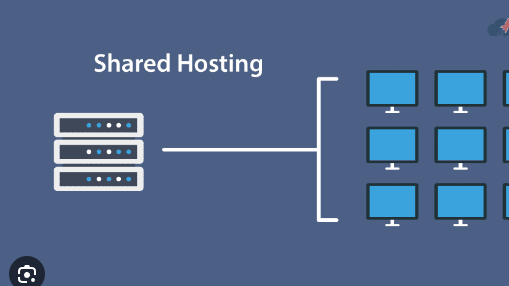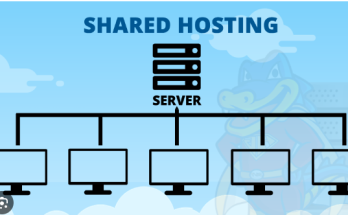Introduction (150 words)
In the digital landscape, websites serve as virtual storefronts, educational platforms, and community hubs. Behind every successful website lies a fundamental element: web hosting. Understanding what web hosting entails is crucial for anyone seeking to establish an online presence. This guide aims to elucidate the concept of web hosting, its significance, types, and the factors to consider when selecting the right hosting service for your needs.
What is Web Hosting? (300 words)
At its core, web hosting refers to the service that enables individuals or organizations to make their websites accessible via the World Wide Web. It involves storing website files, data, and content on a server connected to the internet. These servers are essentially powerful computers designed to store and deliver website information to users who access the site through their browsers.
Types of Web Hosting Services (500 words)
- Shared Hosting: Ideal for beginners, shared hosting involves multiple websites sharing resources on a single server.
- Virtual Private Server (VPS) Hosting: Offers a middle ground between shared and dedicated hosting, providing a virtual compartmentalization of resources.
- Dedicated Hosting: Provides exclusive use of an entire server, offering maximum control and performance for high-traffic or resource-intensive websites.
- Cloud Hosting: Utilizes multiple interconnected servers to enhance reliability and scalability.
Key Features and Considerations (500 words)
When selecting a web hosting service, several crucial features and considerations should be weighed:
- Uptime and Reliability: Ensuring the hosting provider offers high uptime guarantees.
- Bandwidth and Storage: Adequate allocation of resources based on website needs.
- Security Measures: SSL certificates, firewalls, regular backups, and security protocols.
- Customer Support: Availability of responsive customer service for technical assistance.
- Scalability and Room for Growth: Accommodating future expansion or increased traffic.
Factors Influencing Hosting Selection (400 words)
Understanding your website’s needs, audience, and goals significantly influences the choice of hosting service. Factors such as website type (e.g., blog, e-commerce), anticipated traffic volume, budget, and technical expertise play pivotal roles in the decision-making process.
Conclusion (150 words)
In conclusion, a reliable web hosting service forms the foundation of a successful online presence. By comprehending the various types of hosting services, considering essential features, and aligning with specific website requirements, individuals and businesses can make informed decisions to ensure seamless website performance and user satisfaction.
Understanding Web Hosting Services: A Comprehensive Guide
In the digital age, having an online presence is crucial for businesses, individuals, and organizations. Whether you’re a blogger, an e-commerce entrepreneur, or a corporate entity, your website’s accessibility and performance largely depend on the web hosting service you choose. So, what exactly is web hosting, and how does it work?
What is Web Hosting?
In its simplest form, web hosting is a service that enables individuals and organizations to make their websites accessible via the World Wide Web. It involves storing website files, data, and content on servers connected to the internet, ensuring visitors can access your site at any time.
Types of Web Hosting Services
Shared Hosting:
- Ideal for beginners and small websites.
- Multiple websites share resources on a single server.
- Cost-effective but may have limitations on performance and resources.
Virtual Private Server (VPS) Hosting:
- Provides a virtual server within a physical server, offering more customization and resources.
- Suitable for growing websites with increased traffic.
Dedicated Server Hosting:
- Offers an entire physical server dedicated to a single user or website.
- Provides maximum control, performance, and security but tends to be more expensive.
Cloud Hosting:
- Utilizes multiple interconnected servers, ensuring flexibility and scalability.
- Offers resources on-demand and is suitable for fluctuating traffic.
Managed WordPress Hosting:
- Tailored specifically for WordPress websites, offering optimized performance and security.
- Managed by the hosting provider, relieving users of technical tasks.
How Does Web Hosting Work?
Step 1: Domain Registration
Before setting up web hosting, you need a domain name (e.g., www.yourwebsite.com). Registering a domain involves choosing a unique name and purchasing it from a domain registrar.
Step 2: Selecting a Hosting Plan
Once you have a domain, choose a hosting plan that aligns with your website’s needs. Consider factors like traffic volume, storage requirements, and technical capabilities.
Step 3: Uploading Website Files
After signing up for a hosting plan, you’ll receive access to a control panel or FTP (File Transfer Protocol) to upload your website files. This includes HTML, CSS, JavaScript, images, and other content.
Step 4: DNS Configuration
Domain Name System (DNS) configuration connects your domain name to the hosting server. This involves updating the DNS settings to point to your hosting provider’s server, allowing visitors to reach your site when they enter your domain name in a browser.
Step 5: Testing and Launching
Before making your website live, it’s crucial to test its functionality. Ensure all pages load correctly, links work, and any interactive features function as intended. Once satisfied, launch your website for public access.
Key Features of a Reliable Web Hosting Service
Reliability and Uptime: A good hosting provider guarantees minimal downtime, ensuring your website is accessible around the clock.
Security Measures: Robust security features, including SSL certificates, firewalls, and regular backups, safeguard your website from cyber threats.
Scalability: A hosting service that accommodates your website’s growth by allowing easy upgrades in resources.
Customer Support: Access to responsive and knowledgeable customer support is crucial for resolving technical issues promptly.
Backup and Restore Options: Regular backups and easy restoration processes are vital in case of data loss or website issues.
Factors to Consider When Choosing a Web Hosting Service
Performance: Evaluate server speed, hardware infrastructure, and technologies used to ensure optimal website performance.
Price and Plans: Consider the cost of hosting plans against the features and resources offered to find the best value for your needs.
Technical Support: Look for providers offering 24/7 support through various channels (live chat, email, phone) to address potential issues promptly.
Scalability Options: Ensure the hosting service can accommodate your website’s growth without compromising performance.
Conclusion
Choosing the right web hosting service is a crucial decision for the success of your online presence. Understanding the different types of hosting, their features, and the steps involved in setting up a website will empower you to make an informed choice. By considering your website’s requirements, scalability, security, and performance, you can find a reliable hosting service that meets your needs and supports your online goals effectively.



